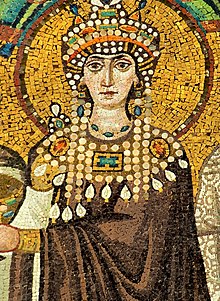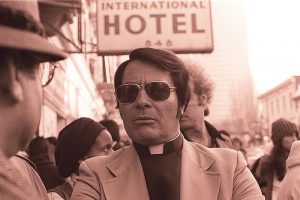“In Rochester, N.Y., women covered the gravestone of Susan B. Anthony with “I voted” stickers. Many wore white in honor of Anthony, who fought for women’s suffrage, an effort that culminated with the ratification of the 19th Amendment to the U.S. Constitution in 1920. Women have been on the national ballot before, but never as the presidential nominee for one of the two major parties.” 1
Susan B. Anthony was born on February 15, 1820 to Daniel and Lucy Read Anthony.2 She was one of seven children. Originally from Adams, Massachusetts, her family moved to Battenville, New York where her parents encouraged all of their children to value self-reliance and principled convictions. She and her family were members of the Quaker religion, which allowed the family to live modestly and practiced non-violence and respect for all people, regardless of race or background.3 Growing up, her sisters and mother would stay at home and do domestic work, while her dad ran a mill. Once her father had enough savings from managing the mill, he sent Susan and one of her sisters to be educated at a boarding school in Pennsylvania, run by the Friends of the Quakers. She graduated at the age of fifteen, and got a job for a modest salary as a teacher. Once she found out that she was making 20% less than men at the school, she went to the school’s administrators and protested that they should be receiving equal pay. Her protests led to her dismissal from the school, and she returned home.4

Susan and her family were both heavily involved in the abolition, temperance, and women’s rights movements. Her parents attended the Women’s Rights Convention at Seneca Falls in 1848 and signed the Declaration of Women’s Rights.5 One significant event that paved the way for her passion for women’s rights occurred in 1852, while she attended a meeting. As she rose to speak on a certain topic, she was ignored by all of the men in the room; angered and insulted she stormed out and soon founded the Women’s State Temperance Society. This was the incident that convinced her to fight for the right for women to vote. She felt as if it was the cornerstone of women’s fight for respect and equality.6 She attended her first Women’s Rights convention in 1852 and from then until the end of the American Civil War, she campaigned from door to door, in legislatures, and in meetings for the abolition of slavery and the promotion of women’s rights. Her persistency and hard work led to married women in New York to own their own property, keep their own wages, and have custody of their children in case of a separation or divorce. She was paving the way for the future as we know it.
In 1889, the National Woman’s Suffrage Association merged with the American Woman Suffrage Association to form the National American Woman Suffrage Association. In 1890, Wyoming became the first state to allow women the right to vote. Susan is the reason today why women can vote and without all of her hard work, women may not have that right. She did not live to see the Nineteenth Amendment but she made a great deal of influence on legislation. Before she died on March 13, 1906, she was able to see all of her hard work in action by four states giving women the right to vote. In her last public speech she gave, she ended with, “Failure is impossible.”7
- Joel Achenbach, “Women cover Susan B. Anthony’s grave with ‘I voted’ stickers as ‘Pantsuit Nation’ goes to the polls,” The Washington Post, November 8, 2016. ↵
- Reconstruction Era Reference Library, 2005, s.v. “Anthony, Susan B.” ↵
- Reconstruction Era Reference Library, 2005, s.v. “Anthony, Susan B.” ↵
- Reconstruction Era Reference Library, 2005, s.v. “Anthony, Susan B.” ↵
- Reconstruction Era Reference Library, 2005, s.v. “Anthony, Susan B.” ↵
- UXL Encyclopedia of U.S. History, 2009, s.v. “Anthony, Susan B.,” by Benson Sonia, et al. ↵
- UXL Encyclopedia of U.S. History, 2009, s.v. “Anthony, Susan B.,” by Benson Sonia, et al. ↵



65 comments
Tyler Sleeter
Great article. I had often heard that women did not get the right to vote until 1920, but I was not aware that Susan B. Anthony played such a significant role in the battle for this right. I think it was interesting that this all started because a group of men at a public meeting would not listen to her when she tried to speak out. Instead of just accepting things as they were, she decided to do something about it and make the change happen. I am glad she was able to see women get the right to vote in four states before she passed away.
Jennifer Pogue
Awesome article. Susan B. Anthony is a great role model for all females no matter age, race, or religion. This article reminded me how much I take for granted rights that I feel are basic. This also reminds me to vote for national and local positions. It is important to stand up for what we believe in because even though we may not be remembered by name like Susan B. Anthony, the results of all our actions will be remembered and change others lives.
Aaron Jaramillo
This is an amazing article! It was informative and interesting all the way through. Susan B. Anthony is truly an iconic figure in the Women’s Right’s Movement. It is amazing how she stepped up and said enough is enough. She is truly inspiring to women all around the planet today. Good job on taking on an article about a great historical figure like Anthony.
Bailey Rider
Susan B. Anthony is such an inspiring woman! Its amazing to think about all of the things she did to push the agenda for women’s suffrage and for the abolition of slavery. Its amazing that she went door to door, and was probable often shot down, and yet she kept fighting and didn’t back down. It was cool to learn that by the end of her lifetime, she at least got to see four states that allowed women to vote. Great, well written article!
Faisal Alqarni
Hi Lianna, this is a very touching story of a woman who through here resilience opened the doors that many women in society take for granted such as the one for voting . Thank you for this for I know it will remind all of us and not just women, the sacrifice made by those who came before us so that we may get the privileges we take for granted in the present time.
Nahim Rancharan
This was a very interesting article especially since I knew very little about Susan B. Anthony. It was nice to match a name with the story. Even more so, your article is organized in a way that it helps to tell her story effectively and in great detail, which is great given the impact that this woman has had on American society, more specifically, the Women’s Rights Movement. It was interesting to find out that amongst all her accomplishments, was the Women’s State Temperance Society which served as the stepping stone for some of the major organizations that pushed for the rights of women in America. Susan B. Anthony is an American hero and this article effectively highlights the impact she made. Great Job!
Roberto Tijerina
Wow! I have heard of Susan B. Anthony, but this article has brought up so many more facts! I never knew that she was a Quaker, I guess that really helped her persevere and really shaped her mind to see that things were not equal. Also I find it shocking that just the discussion of wage got her fired from her teaching job. Lasty, she graduated at fifteen?! That is awesome! This article was organized very well. Great Job and keep on making great work!
Teresa Valdez
I never realized everything that happened to Anthony that made her such a strong voice in women’s suffrage. I loved the equal pay anecdote; it proves that people have been fighting for equality for a long time and will continue until equality was achieved. I like how the article explain why Susan B. Anthony was such a prominent voice in women’s right, detailing her struggles and background. Well done!
Erick Paul Martinez
Great article on a very good topic. It is amazing to stop and ponder the tremendous impact Susan B. Anthony had on society and the way women are treated today. It was no easy battle for her in fighting for women’s rights. She even lost her job in attaining the equality we have today; but it is great to see that her fight was won in the end.
Irene Astran
I just recently saw the photo of the tomb you described in your introduction. I felt the image provoke a lot of emotion. It is incredible to see that people are still paying respects and retribution to Anthony. I am pleased to hear that she during her lifetime she was able to witness small victories in those four different states.